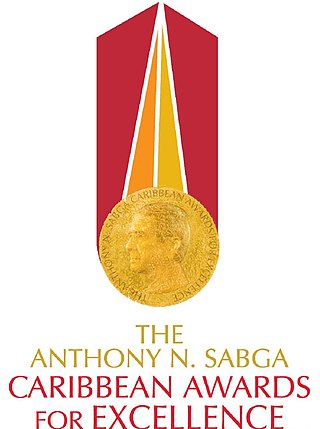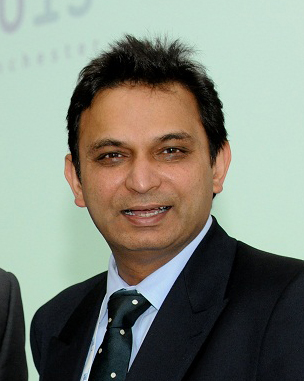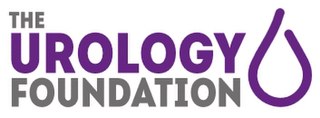Related Research Articles
Winston Bernard Coard is a Grenadian politician who was Deputy Prime Minister in the People's Revolutionary Government of the New Jewel Movement. Coard launched a coup within the revolutionary government and took power for three days until he was himself deposed by General Hudson Austin.

The University of the West Indies (UWI), originally University College of the West Indies, is a public university system established to serve the higher education needs of the residents of 18 English-speaking countries and territories in the Caribbean: Anguilla, Antigua and Barbuda, The Bahamas, Barbados, Belize, Bermuda, British Virgin Islands, Cayman Islands, Dominica, Grenada, Guyana, Jamaica, Montserrat, Saint Kitts and Nevis, Saint Lucia, Saint Vincent and the Grenadines, Trinidad and Tobago, and Turks and Caicos Islands. Each country is either a member of the Commonwealth of Nations or a British Overseas Territory. The aim of the university is to help "unlock the potential for economic and cultural growth" in the West Indies, thus allowing improved regional autonomy. The university was originally instituted as an independent external college of the University of London.

The Gleason grading system is used to help evaluate the prognosis of men with prostate cancer using samples from a prostate biopsy. Together with other parameters, it is incorporated into a strategy of prostate cancer staging which predicts prognosis and helps guide therapy. A Gleason score is given to prostate cancer based upon its microscopic appearance. Cancers with a higher Gleason score are more aggressive and have a worse prognosis. Pathological scores range from 2 to 10, with higher numbers indicating greater risks and higher mortality. The system is widely accepted and used for clinical decision making even as it is recognised that certain biomarkers, like ACP1 expression, might yield higher predictive value for future disease course.
Donald F. Gleason was an American physician and pathologist, best known for devising the "Gleason score" which predicts the aggressiveness of prostate cancer in patients. He was a former chief of pathology at the Minneapolis VA Medical Center, and received three degrees from and taught at the University of Minnesota.

The Anthony N Sabga Caribbean Awards for Excellence were initiated by Anthony N. Sabga, one of the Caribbean's most celebrated entrepreneurs and founder and chairman emeritus of the ANSA McAL Group of Companies in the Republic of Trinidad and Tobago.

Edith E. Sproul, M.D. was an American pathologist whose work with Georgios Papanikolaou of the Cornell University Medical School in New York led to the development of the pap smear. Sproul described the relationship between thrombophlebitis and pancreatic cancer and characteristics of early prostatic cancer.

Prokar Dasgupta is an Indian-born British surgeon and academic who is professor of surgery at the surgical academy at King's Health Partners, London, UK. Since 2002, he has been consultant urologist to Guy's Hospital, and in 2009 became the first professor of robotic surgery and urology at King's, and subsequently the chairman of the King's College-Vattikuti Institute of Robotic Surgery.

Violet Eudine Barriteau,FB, GCM, is a professor of gender and public policy, as well as Principal of the University of the West Indies at Cave Hill. She was also the president of the International Association for Feminist Economics (IAFFE) from 2009 to 2010, and she is on the advisory editorial boards of Palimpsest: A Journal on Women, Gender, and the Black International, published by SUNY Press, and Signs: Journal of Women in Culture and Society, published by University of Chicago Press.
Suzannah Claire "Suzy" Lishman CBE was the President of the Royal College of Pathologists 2014–2017.
Jacqueline Creft was a Grenadian politician, one of the leaders of the revolutionary New Jewel Movement and Minister of Education in the People's Revolutionary Government from 1980 to 1983. She was executed in October 1983, along with Maurice Bishop, prime minister of the country and father of her son Vladimir (1977–1994).

Margaret E. Billingham was a pathologist at Stanford University Medical Center, who made significant achievements in the early recognition and grading of transplant rejection following cardiac transplantation, known as 'Billingham's Criteria'. She also described chronic rejection and techniques in heart endomyocardial biopsy.
Sheila Dorothy King, CD was a Barbadian-born, Jamaican academic and physician. She was the second woman to be appointed as full professor at the University of the West Indies (UWI). She was the first woman appointed as a professor in the Faculty of Medicine in 1983, ten years after she was appointed as head of UWI's Microbiology Department. A specialist in infectious disease and viral epidemiology, she advised numerous national, regional and international departments and governmental agencies on such diseases as dengue, influenza, and typhoid. In 1998, she was honored as a Commander of the Order of Distinction.
Bridget Jones was a British literary academic who pioneered the inclusion of Caribbean literature in European university studies programs. While teaching French literature at the University of the West Indies, Jones developed an interest in French Caribbean writing and developed one of the first PhD curricula focused on francophone Caribbean literature. Upon returning to England, she taught at the University of Reading and the Roehampton Institute. An annual award, distributed by the Society for Caribbean Studies, as well as a scholarship program, given by the University of the West Indies, are named in her honour.
Helen Nosakhare Asemota is a biochemist and agricultural biotechnologist based in Jamaica. She is Professor of Biochemistry and Molecular Biology and Director of the Biotechnology Centre at the University of the West Indies at Mona, Jamaica. Her research develops biotechnology strategies for production and improvement of tropical tuber crops. She is notable for leading large international biotechnology collaborations, as well as for acting as an international biotechnology consultant for the United Nations (UN).

The Urology Foundation (TUF) is a charity that works across the UK and Ireland with the aim of improving the knowledge and skills of surgeons who operate on diseases of the male and female urinary-tract system and the male reproductive organs and funds research to improve outcomes of all urological conditions and urological cancers.
Maureen Warner-Lewis is a Trinidadian and Tobagonian academic whose career focused on the linguistic heritage and unique cultural traditions of the African diaspora of the Caribbean. Her area of focus has been to recover the links between African cultures and Caribbean cultures. She has been awarded multiple prizes for her works, including two Gordon K. and Sybil Lewis Awards, the Gold Musgrave Medal of the Institute of Jamaica, and was inducted into the Literary Hall of Fame of Tobago.
Jada Benn Torres is an American genetic anthropologist and Associate Professor of Anthropology at Vanderbilt University. She serves as Director of the Laboratory of Genetic Anthropology and Biocultural Studies. Her research considers the genetic ancestry of African and Indigenous people
Anthony James Costello, FRACS, FRCSI, is an Australian urologist. He served as head of the department of urology at the Royal Melbourne Hospital, Australia. He established the first robotic prostate cancer surgery programme in Australia and published the first series of men who had laser surgery for benign prostate enlargements.
Fátima Carneiro is a Portuguese pathologist. Since 2001 she has been director of the Pathological Anatomy Service at the University Hospital Centre of São João in Porto. In September 2018 she was voted first in a list of the hundred "Best & Brightest" pathologists in the world, by the magazine, The Pathologist.

Elizabeth Hurdon was a British gynecologist and pathologist, considered the first gynecological pathologist.
References
- 1 2 "Kathleen Coard (Date of Birth: 18th July 1952)". icons.niherst.gov.in. 22 June 2017. Archived from the original on 25 January 2021. Retrieved 1 July 2021.
- 1 2 3 4 5 "Caribbean Women in Science" (PDF). NIHERST. pp. 58–59. Archived (PDF) from the original on 25 October 2017. Retrieved 1 July 2021.
- 1 2 3 4 5 "Science & Technology 2010 Laureate: Prof Kathleen Coard". Trinidad Guardian . 10 January 2010. Archived from the original on 1 July 2021. Retrieved 1 July 2021.
- 1 2 3 4 "Prof. Kathleen Coard". Anthony N Sabga Caribbean Awards for Excellence. Archived from the original on 11 January 2021. Retrieved 1 July 2021.
- 1 2 "Kathleen Coard appointed Professor". University of the West Indies. 23 July 2003. Archived from the original on 25 October 2017. Retrieved 1 July 2021.
- ↑ "UWI Professor Kathleen Coard receives Anthony N. Sabga Caribbean Award for Excellence 2010". The Pelican. Archived from the original on 28 April 2021. Retrieved 1 July 2021.
- ↑ Loubon, Michelle (29 April 2010). "Anatomic pathologist sheds light on field". Trinidad Guardian . Archived from the original on 1 July 2021. Retrieved 1 July 2021.
- ↑ "Birthday Honours – Grenada" (PDF). The London Gazette . 11 June 2010. Archived (PDF) from the original on 9 February 2020. Retrieved 1 July 2021.
- ↑ Loubon, Michelle (16 April 2011). "Laureates shine...at Anthony N Sabga Caribbean Awards for Excellence". Trinidad Guardian . Archived from the original on 13 April 2019. Retrieved 1 July 2021.